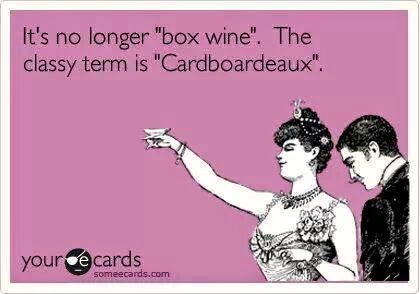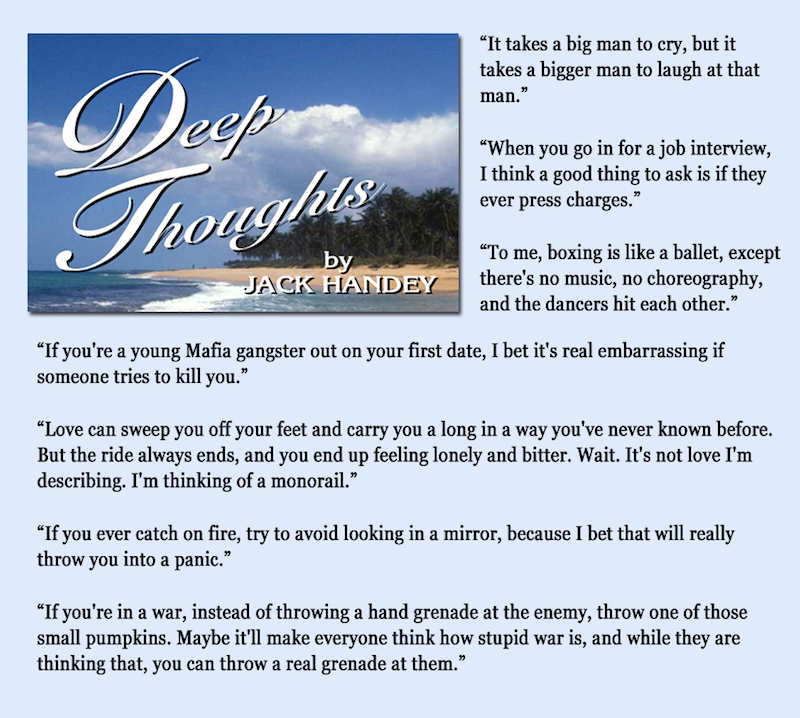Two recent items that challenge the borders of categories in the world of art, literature, and humor: another Jane Austen quote (yes, Chris Ambidge keeps sending them on); and an e-card (passed on by Victor Steinbok because of the entertaining portmanteau on it).
Another Jane. This one’s from Mansfield Park:
These Austen quotations are like framed samplers: quotations isolated as, (metaphorically) framed as, worth our attention. Slogans as art forms. The visual content is minimal, mostly a suggestion of the late 18th / early 19th century English genteel social life.
The e-card portmanteau. e-cards are similar, but the sentiments are invented rather than quoted from known writers, and they are intended to be funny, usually in a snarky or wry way; they are jokes of a kind. The illustrations are rarely crucial to the humor, but serve to enhance the text. This week’s example:
An entertaining portmanteau of cardboard (as in cardboard box) and Bordeaux (wine), with /bɔrd/ as overlap.
Texty creations. In both examples, text (rather than image) is the crucial component, and the result is intended as art, humor, or narrative (often two or more of these at once) — making these creations hard to classify, as I’ve often pointed out on this blog.
Some other examples:
works by Jenny Holzer and Ed Ruscha (among others), conventionally classified as art, despite the centrality of the texts in them
words-only cartoons (see here), “slogans presented as cartoons”, especially in webcomics:
Close to the words-only end of the scale are, for instance, Ryan North’s Dinosaur Comics, considered here, and Dante Shepherd’s Surviving the World, considered here: captioning as art.
or simply captioning of existing images, period, as in efforts of mine posted on this blog and AZBlogX over the years
other creations that think of themselves as webcomics but can be thought of as very long captions for minimal images, for instance in the Oatmeal effort “How British accents sound to Americans” (here), where the visual contributes almost nothing; this is a comic text
and the works of Jack Handey:
Jack Handey (born 25 February 1949) is an American humorist. He is best known for his Deep Thoughts by Jack Handey, a large body of surrealistic one-liner jokes [with background illustrations that are irrelevant to the jokes]
A Handey sampler:
From Jane Austen to Jack Handey. A long strange trip.



